Author: Paul Burnett
Welcome to Cristina Kim, Our Newest Historian/Interviewer
With the arrival of new interviewer Cristina Kim, the Oral History Center enters a new era: for the first time in several years, after the retirement of several interviewers and directors, the Oral History Center is fully staffed with a new director and four new full-time interviewers hired since 2013. Cristina joins us from NPR partner, StoryCorps. A UC Santa Cruz graduate, she also holds master’s degrees from Columbia University and Brown University.
In July I sat down to talk with her about her life and work and about the past and future of the Oral History Center. We began our discussion the way most OHC interviews usually begin, with questions about family background and upbringing. So I learned that Cristina was born in San Diego and raised in the Bay Area, the youngest of three. Her parents are immigrants; her sisters were born in Spain. “My mom is from Madrid, and my dad is actually from Kwangju, South Korea. I think my childhood was framed by the fact that I’m the only U.S.-born person in my immediate family.”
Cristina has a strong interest in theory, identity, and social movements, and all three of her degrees are interdisciplinary. At Santa Cruz she majored in Latin-American and Latino studies. “But LatinX studies,” she notes, “is the more inclusive term. As a scholar I’m interested in inclusion and the ability to look at complex and changing identities, going beyond gender binaries and the nationalist project and really breaking down boundaries. I think that that drives a lot of my work.”
She is happy to be back in California, and is well suited to work on the Oral History Center’s mission: regional history with national and global implications. “I always admired the particular terroir, if you will, of the Bay Area. I like its counterculture history, the nature aspect, the food; I felt really identified with that. I was never one of those people that wanted or felt the need to fly the coop. It’s only now that I’ve returned to California that I realize that the five years that I spent in the East Coast really expanded me intellectually.”
As a graduate student in American Studies at Columbia and Brown, Cristina benefited from mentors and archives. Historian Alice Kessler-Harris was particularly important to her development as a scholar. “It was thanks to her that I learned about the oral history office at Columbia, and about what interviews can add to the study of history. You can interview prominent players, and you should, but oral history also allows you to get perspectives from the bottom up.” While working in archives and writing her thesis about the radio programming of the U. S. Bureau of Home Economics from 1928 to 1943, Cristina wondered about the missing voices of the target audience for those broadcasts. Then she discovered letters that homemakers had written to the producers in response to the show. But there were no recorded interviews with those women. What might oral history have contributed to primary source documents in archives? When her thesis was completed, Cristina decided to undertake some interviews with proprietors of food trucks, exploring Asian American identity, masculinity, entrepreneurship, and the merging of various food ways.
After finishing her second master’s degree at Brown, Cristina joined StoryCorps where she worked as a program specialist for “StoryCorps @ your library,” a program that provided equipment and training and programmatic support to public libraries. “We worked with the Ferguson Public Library, we worked with the Providence Community Library. Because of the good work we did there, and just the excellent feedback we got from our libraries, we worked with IMLS to create a grant that would specifically work with tribal libraries, and their very specific needs. We provided the training and the tools for the tribal libraries and their partners to collect and archive the stories that they find meaningful.”
Now, at the Oral History Center, she finds herself working in a library. “I have such deep respect for librarians, libraries, archives, and archivists. I always found libraries to be my home. Whenever I walk into them, I feel at peace. There’s no greater joy than walking in and grabbing too many books that I’m never going to be able to read in one sitting. It’s like a delicious banquet.”
At the Oral History Center Cristina will build on an extensive collection of interviews in university history, ethnic studies, food and wine, and other fields. She begins her work here with interviews of foundations and service organizations (such as Rotary International) and is also supporting OHC historian Todd Holmes as he develops a new series of oral histories about the creation and development of Chicano studies. She looks forward to conducting interviews with a wide range of narrators and is especially interested in the upcoming 50th anniversary of the Department of Ethnic Studies at Berkeley and the chance to build on the Center’s extensive collection of interviews in university history and social movements.
-Linda Norton, Senior Editor
New Podcast Series: “From the Outside In: Women in Politics”
On September 1, the Bancroft Library hosted a special event for Senator Barbara Boxer to celebrate and formally announce the donation of her political papers to the Library’s collection. Before the event, the Senator graciously sat down with OHC staff for a short interview, which will be the concluding feature of the Center’s six-episode podcast series, “From The Outside In: Women In Politics.” We are excited to announce that this timely podcast will be narrated by Emmy award-winning television journalist Belva Davis, and will debut at the end of September.
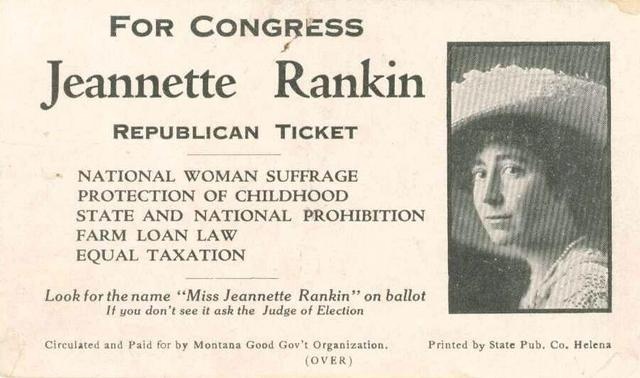
In commemoration of 2016 proving to be another historic year for women in politics, the project seeks to showcase the unique and important interviews in our collection of women who, against tremendous odds, broke through glass ceilings and forged their own paths in the political arena. The six episodes of “From The Outside In” chart the political advancement of women in the United States through the lives and achievements of ten noteworthy pioneers. These include: women’s suffrage leader Alice Paul; America’s first congresswoman Jeanette Rankin; actress, social reformer, and congresswoman Helen Gahagan Douglas; former U.S. Treasurer and Planned Parenthood spokeswoman Elizabeth Gatov; former HEW Secretary Patricia Hitt; and California’s first Asian-American assemblywoman and Secretary of State March Fong Eu. The project also highlights women who were instrumental in their communities, such as political reformer LaRue McCormick and longtime civil rights advocate and community organizer Mary Frances Albrier. The Center’s oral history recordings featured in this series cover the period from the 1910s to the early 1980s. To bring the series to date, the last episode will feature interviews with Senator Barbara Boxer and San Francisco Supervisor Jane Kim.
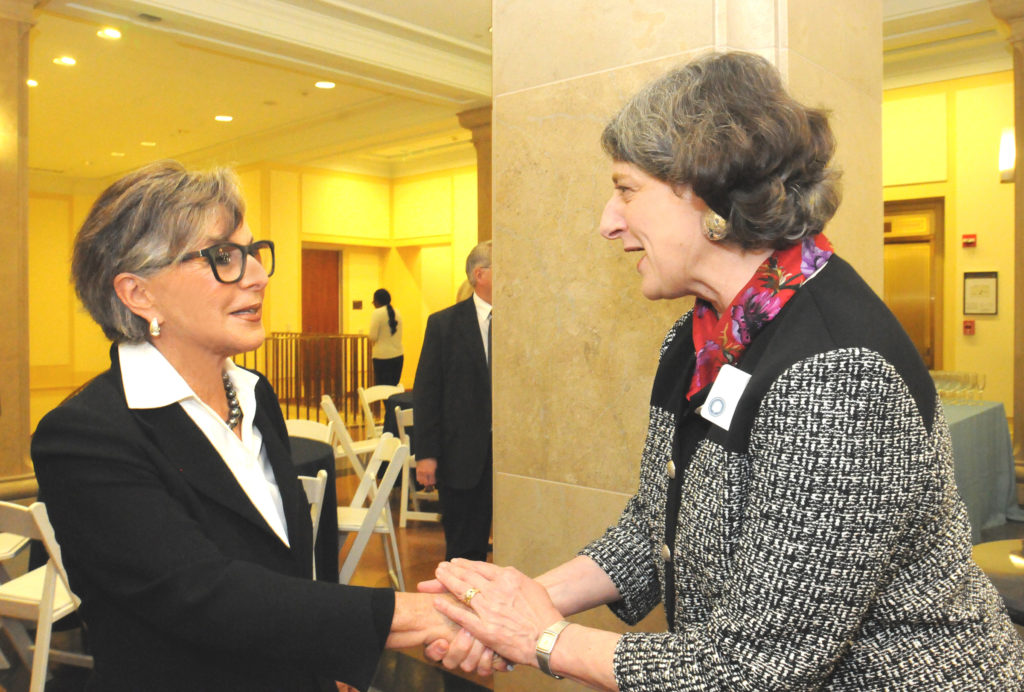
Work on this podcast has been underway for months. And in every sense it has proven to be collaborative, pulling together the many talents and skillsets of the Center’s staff. We plan for this podcast to be the beginning of a bi-annual podcast series, titled Tales From The Campanile. This series will further highlight the world-recognized oral history collection of the Bancroft Library, and introduce the 4,000 interviews in that collection to a wider audience.
Please be on the lookout later this month for the debut of “From The Outside In: Women In Politics”
-Todd Holmes, historian/interviewer, September 2016
Cecilia Chiang: The Woman behind San Francisco’s The Mandarin Restaurant
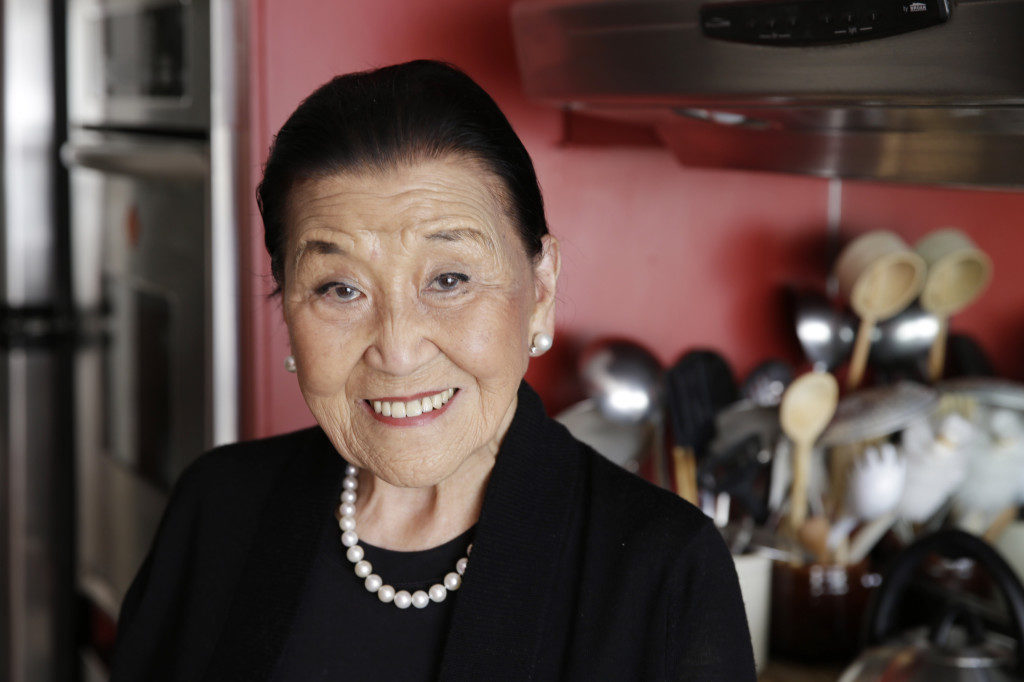
It’s impossible to talk about US foodways or the formation of an American palate without talking about Chinese food. From it’s iconic representation in film and tv programs to the sheer number of Chinese restaurants across the United States, Chinese food is undeniably a ubiquitous part of the American foodscape and imaginary. Americanized Chinese dishes, such as Chop Suey and Egg Foo Yung, first became popular in the late 1850s with Gold Rush miners in San Francisco and ultimately spread to urban centers in the early 20th century, where diners consumed the perceived “exotic” fare with great gusto.
However, far from signaling a greater inclusion of Chinese immigrants and Chinese-Americans into the civic fabric, the increasing interest in Chinese food occurred amidst the prevailing Nativist sentiments that saw the passing of the 1882 Chinese Exclusion Act and the Johnson-Reed Act in 1924. In this xenophobic climate, Chinese food–which was primarily Cantonese fare modified for a white clientele–was seen as cosmopolitan and rare and yet also, disgusting, cheap, and unsavory. As with the equally popular slumming tours of Chinatown of the early 1900s, the demand for Chinese restaurants was often just a means for consumers to flirt with the potentially dangerous and unassimilable “other.”
It wasn’t until the end of World War II that perceptions of Chinese in America and Chinese cookery began to change. Seizing the moment, a few Chinese restaurateurs on the East and West coasts opened restaurants that defied existing connotations of Chinese food and redefined its possibilities. One such trailblazer was Cecilia Sun Yan Chiang. In 2005, UC Berkeley Oral History Center interviewer Vic Geraci had the opportunity to sit and talk with Cecilia about her extraordinary role in bringing regional Mandarin and Szechwan cuisine to San Francisco.
Born in Wuxi, near Shanghai, in 1920, Cecilia Sun Yan Chiang was the seventh daughter–“Sun Yun”–of a wealthy and educated family. Cecilia’s bucolic early life was shattered by the 1942 Japanese invasion of China, which forced her to leave home in an arduous journey to Chongqing. In 1949, Cecilia would again have to leave home to escape the Communist Revolution. Leaving on “the last plane from Shanghai,” Cecilia would never again live in China.
Cecilia settled in Tokyo, Japan with her husband and family, where she opened a Chinese restaurant for the Chinese and American expatriate community there. This moment of stability would prove a relatively short-lived venture. In 1957 Cecilia went to visit her widowed sister in San Francisco. Intending to stay only for a few months, Cecilia became entangled in the purchase of a restaurant with friends. Although her friends ultimately backed out, Cecilia decided to keep the property and open her first Chinese restaurant in the United States: The Mandarin.
Located on the outskirts of Chinatown, the first incarnation of The Mandarin was an experiment in confidence and ingenuity. Although she never learned to cook as child, Cecilia did develop an appreciation for fine cooking. From the beginning, Cecilia knew she wanted to serve customers the Mandarin and Szechuan food of her childhood and extensive travels across China. As she recalled in her oral history, she wanted “no chop suey in my menu and no egg fu yung. All this Chinatown stuff is a no-no.”
As a woman committed to serving a wholly different type of Chinese food than what her competitors were serving, opening a restaurant was no easy task. In the very early days of the restaurant, many of the Chinatown purveyors would not deliver to her because she did not speak Cantonese and was a woman. The restaurant was nearly empty for the first six months after it opened.
Cecilia didn’t let these early hardships stop her. She hired a chef and used every opportunity she had to educate diners by sending them samples of Beggar’s Chicken, Smoked Tea Duck, and Shark Fin. It worked. The Mandarin soon developed a loyal following including Jefferson Airplane band members, Vic Bergeron of Trader Vic’s, actor Danny Kaye, and famed journalist Herb Caen. Shortly after Caen wrote about The Mandarin, the demand began to exceed the size of the small dining room. When she began to have to turn away customers because the restaurant was at capacity, Cecilia knew she had to move to a bigger space.
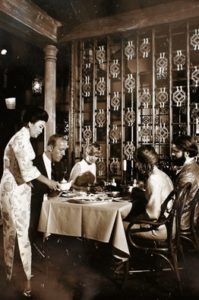
In 1968 Cecilia opened a new, larger incarnation of The Mandarin in Ghirardelli Square. Obtaining space within Ghirardelli Square was, again, no easy feat. In her oral history interview, Cecilia recalls how the realtor tried to dissuade her from applying because Chinese restaurants were “too greasy, too dirty, a lot of mice, a lot of cockroaches.” In spite of the racially-motivated rejection of her offer, Cecilia did not back down.
Instead, she invited the building managers to dine at The Mandarin. Greeting them in a beautiful Chinese gown, she introduced them to her interpretation of Chinese food and, as always, served them on tables covered with clean, pink linen tablecloths. In this way, Cecilia showed them Chinese cuisine was more than just Americanized Cantonese food and that Chinese restaurants could provide as elegant an experience as any French or Italian restaurant. That night the building managers left the restaurant blissfully well fed and Cecilia got the building space she wanted.
Cecilia Chiang made the The Mandarin in Ghiradelli Square into an institution of the Bay Area dining scene and presided over it for 23 years, until she sold it in 1991. During those years, she also started a cooking school, wrote The Mandarin Way and The Seventh Daughter, and even launched a second restaurant, The Mandarette, with her son, Phillip Chiang, who went on to co-found the P.F. Chang’s restaurant chain. Cecilia Chiang was nothing short of a culinary ambassador and restaurateur. She pushed the boundaries of what Chinese food could be and, in so doing, promoted a sense of cultural pride that refused the racist caricature of Chinese cookery and by extension, Chinese and Chinese Americans.
Cristina Kim, Historian/Interviewer, September 2016
Remembering an Iconoclast: Warren Hinckle 1938-2016
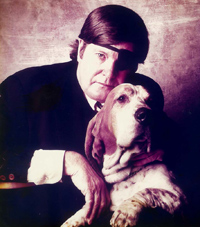
Warren Hinckle, best known for co-creating Gonzo Journalism with Hunter S. Thompson, died yesterday in his home in San Francisco. Described as pugnacious, swashbuckling, hard-drinking, and brilliant by all those that knew him, Warren Hinckle’s work as an editor and reporter has left an indelible mark on the field of journalism within the United States.
The Oral History Center is fortunate enough to have conducted an extensive oral history with Warren Hinckle, which resulted in 43 hours of recorded material. Interviewed by OHC historian, Lisa Rubens, Hinckle’s reflective oral history is an evocative and expansive account of the man behind Ramparts and Scanlan’s and a true testament to his spirit.
Raised in San Francisco’s Sunset District during the 1940s, Hinckle expressed an interest in journalism from a very early age. Hinckle notes, “Some people want to be fishermen when they grow up, some want to be cops, some want to be doctors. I always wanted to be a newspaper guy. […] What little money I had when I was a kid, I would always go down to the out of town newspaper stores and buy papers and look at them and went to second hand bookstores and bought books, back even before I got into high school.”
His early interest in newspapers would transform into a long and notable career that would push the limits of what constitutes journalism and, in so doing, would capture the frenetic essence of the 1960s, 70s and 80s. As a writer for the SF Chronicle and Examiner, Hinckle became well known in the Bay Area for his investigative journalism and innate ability to turn things upside down and push people’s buttons. In one of his interviews with Rubens, Hinckle recalls, almost fondly, his sustained criticism of Dianne Feinstein: “I have a long history, in any newspaper I’ve written for, to give Dianne a few jabs here or there. It started out when she— which I thought was great, what spunk it showed—dumped a drink on my head one night at the Officers’ Club.”
Hinckle’s work, however, was not merely provocative for the sake of provocation. Assuming the role of executive editor at Ramparts in 1964, Hinckle transformed the small-circulation Catholic magazine into a mass-circulation publication that was openly critical of the Vietnam War and unapologetic of its inclusion of Che Guevara and Eldrige Cleaver’s writings. Although short-lived, Ramparts was a pivotal product of its times, which has subsequently been lauded as the precursor to publications, such as Rolling Stone, Mother Jones, and Slate. After Ramparts, Hinckle would go on to create Scanlan’s, which though also short lived and mired in financial issues, would give birth to Gonzo Journalism with Hunter S. Thompson’s irreverent 1970 article, “The Kentucky Derby is Decadent & Depraved.”
It goes without saying that Warren Hinckle’s many contributions and even failures forever altered and reimagined what journalism could look like, sound like and for whom it was being created. The Oral History Center invites you to look back and learn about Warren Hinckle—a true iconoclast—from the man himself. So, pour yourself a Scotch, neat, and immerse yourself in this remarkable oral history.
Camera Use Now Free
The Bancroft Library is happy to announce that camera use is now free for all of our researchers. Starting today (15 August 2016), we will no longer charge a daily fee for camera use in our reading room. We believe that this new policy enables us to better support the research, learning, and scholarship conducted in The Bancroft Library every day.
Please note that all researchers must still agree to and sign our Camera Use Policy.
Happy researching!
A Night With Voice of Witness: August 16 @ 6pm in the MLK Student Union at UC Berkeley
This Tuesday—August 16, 2016—please join us along with Voice of Witness for an evening of oral history and human rights. OHC interviewer, Shanna Farrell, will moderate a lively discussion between Voice of Witness editors, Peter Orner (Underground America: Narratives of Undocumented Lives) and Robin Levi (Inside this Place, Not of it: Narratives from Women’s Prisons) on the intersections of oral history methods, access, and social justice.
The event will begin at 6pm in the MLK Student Union’s Tilden Room (5th Floor). Light refreshments will be served and Voice of Witness books will be available for purchase.
This event is sponsored by OHC’s Advanced Oral History Summer Institute, which brings together students, faculty and scholars from across the United States for an intensive week of study and discussion. For more details, see the Oral History Center website.
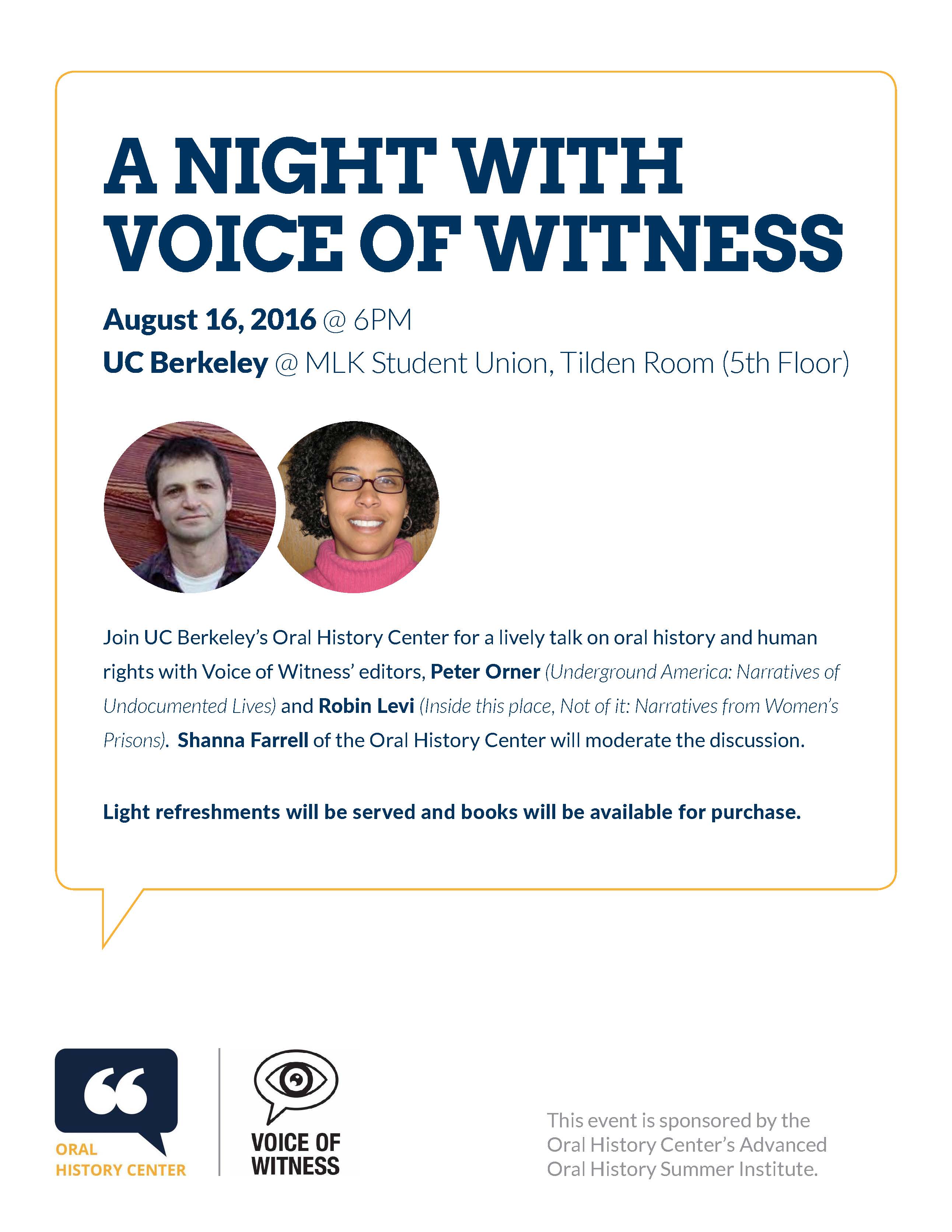
George Halvorson, Chair and CEO of Kaiser Permanente, 2002-2013
Today we are thrilled to release our substantial life history interview with George Halvorson, a former Chair and CEO of Kaiser Permanente, one of the nation’s largest providers of health care. Halvorson has been listed several times on Modern Healthcare‘s “Most Influential People in Healthcare” roll call, reaching the #6 position in 2012. Halvorson headed up the Kaiser Foundation Health Plan and Hospitals from 2002 through 2013. Before that, he served as founding CEO of HealthPartners in Minnesota. Since his retirement from Kaiser, Halvorson has devoted his time to promoting the benefits of early childhood education through California’s First Five initiative and to addressing social difference and tensions through his own Institute for Intergroup Understanding.
In 2016, Karen Ignagni, herself one of the Most Influential People in Healthcare and former CEO of America’s Health Insurance Plans, wrote this of Halvorson:
George Halvorson has led an extraordinary life that is filled with accomplishment, introspection and leadership. These tapes beautifully capture what he did, but what’s especially riveting is how he did it. In listening to the complete set, you come away with nothing but admiration for the sheer magnitude of what this curious, big thinking, self-aware but personally modest man has accomplished.
I’ve known George for approximately 25 years and believe leaders from different stakeholder communities will find these interviews both inspiring and challenging. While all of us know how successful George has been, these interviews explain how his career unfolded, what drove him, and how he created the circumstances that allowed him to lead very different organizations.
As listeners, we have a front row seat for his thought process, his choices and his perseverance. We learn what a formative experience it was for George not to become the CEO of Blue Cross and Blue Shield of Minnesota, how it made him available for the leadership role at HealthPartners, and how he forged new relationships with physician groups and hospitals long before health policy leaders were suggesting this was the path to the future.
We learn how George worked with Key employers in Minnesota to attack rising healthcare costs, create product transparency and pave the way for a pathbreaking buying cooperative. At the same time, we learn how a busy and successful executive constructed and implemented a plan to bring healthcare coverage to the people of Uganda and teach leaders from the World Bank how to achieve that objective efficiently and effectively.
Even though I had the pleasure of watching George’s transition to Kaiser Permanente, I enjoyed listening to him describe why he made the change and what he set out to accomplish in that key delivery system. At that point in their careers many CEOs might have chosen to simply enjoy the ride. Not George Halvorson. He chose to make Kaiser a leader on safety long before it was top of mind for others in large health systems. We learn about his quest to attack sepsis and reorient his hospitals’ processes to make that possible. We also learn about what it took to form a strong partnership with the Permanente medical group and exactly what made that work over time.
But that’s not all. George was a leader in helping to pass the Affordable Care Act. Here he gives us an inside look at what that responsibility meant to him and how it impacted the country. George has been an actor on the national stage, but what is particularly fascinating is his ability to explain what he was thinking, why and how that crafted his strategy. As a listener, you are transported back in time as he recounts his experience.
George’s introspection as a prolific author makes him a skilled raconteur. You root for him, you admire him and you are delighted that you listened. Many CEOs have experiences worth sharing but few have the ability to teach. George Halvorson has that gift, and these tapes make it possible for us to learn, to admire and to respect this unique individual who dared to dream and had the courage and skills to lead.
Video excerpts:
Welcoming our Newest Historian and Interviewer: Todd Holmes
We are proud to announce the arrival of a new interviewer at the Oral History Center, Todd Holmes. Todd is joining us from the Bill Lane Center for the American West at Stanford University, where he was a researcher and Affiliated Scholar. Todd completed his PhD from Yale University, where he studied the political history of California and its impact on national politics in the late-20th century. His book manuscript is called The Fruits of Fracture: The Corporate West, The United Farm Workers Movement, and the Rise of Reaganism in American Politics. We were intrigued by Todd’s interests, skills, and promise as an oral historian, and thought he would be a great addition to our group, helping us with our series on Politics and Government; Business; Food and Wine; Natural Resources, Land Use, and the Environment; and Social Movements.
We thought it would be appropriate to conduct an oral history interview with Dr. Holmes to learn a bit more about him and to share what we learned with you. Although Todd’s doctorate in history was from back East, he in fact hails from California. He grew up in Roseville, northeast of Sacramento, with both sides of his family farming in the Central Valley. As a child, Todd showed a passion for history, especially the history of US presidents. But unlike many, he persisted in his passion by earning a B.A. and M.A. in history from Sacramento State, resulting in a comparison amongst some of his relatives between him and the Forrest Gump: “Well, Todd just kept going to school because no one told him he had to stop.” At Yale, Todd broadened his interests in subfields of history, and other disciplines as well, including political science and anthropology, which was particularly facilitated by his four years as coordinator of the interdisciplinary Agrarian Studies Program.
In this interview, Todd also discusses the evolution of his dissertation/ book project, which views the rise of Reagan’s brand of politics through the lens of the struggle between the California farmworkers movement and what he calls the Corporate West, a unified front in California that coalesced partly in response to labor organization in California’s farms and fields in the 1960s. Todd’s extensive archival research ranged from politicians to corporate ledgers to the documents of the United Farmworkers. But it was the oral history collection here at the Bancroft Library that he feels helped him to understand what was going on beyond the documentary record:
… there’s no archival material that could give you this type of insight. Reagan’s business advisors, Holmes Tuttle, Henry Salvatori, the kind of influence and relationships and how that worked. There is no paper trail. Holmes Tuttle didn’t write letters with Ronald Reagan; he talked to him on the phone every single day.
Todd then went out on his own to interview housewives who made the consumer choices that supported the boycott, labor activists whose views revealed a range of perspectives on the farmworker movement, and larger growers who stood to lose from the UFW grape boycott. In these interviews, Todd realized the extent to which political identity in his story failed to cleave neatly along lines of party affiliation, occupation, socioeconomic status, race, or ethnicity. As one example, Todd recounts his interview with a self-identified conservative housewife who supported the grape boycott.
Notwithstanding this political complexity on the ground, Todd argues that the farmworkers’ bid for social justice ultimately produced a better organized, more broadly based conservative movement in California and, later, in the entire United States.
So at the end of the day you could say that the movement did this, this, and this. The unintended consequence is you just strengthened and galvanized and politically mobilized the very corporate entity that you thought you were challenging… And that kind of insight, what really pushed me to look at that, came from talking to a number of growers who had been in agriculture for a very long time.
It is from this conclusion that the interview turns to a discussion of the purpose of oral history, which is usually understood as a practice of social justice in itself, of redressing an imbalance in the documentary record that favors, well, the record keepers, the winners of history. While this is an important goal of oral history, Todd recalls that oral history is essential to understanding how people make sense of their world in every conceivable context, including the governance of the state of California.
After Todd completed his PhD, he took a post-doctoral fellowship at the Bill Lane Center for the American West at Stanford University, where he again immersed himself in an interdisciplinary environment that was devoted to historical scholarship, policy research and educational outreach about the region he knows best. At the Bill Lane Center, Todd became intrigued by the possibilities of working in a para-academic environment, one that is devoted to public history and making use of new technological platforms to reach more people: researchers, policymakers, students, and a curious public.
We are delighted to have Todd join us, and we look forward to collaborating with him on large oral history projects and on new ways to present our work online, using the latest tools to do so. Watch these pages for Todd’s contributions to the Oral History Center!
Paul Burnett, Oral History Center
From the Director: Celebrating the Oral History Class of 2016
The 2015-2016 school year recently wrapped up at the Oral History Center with what has become a new and thriving tradition: the annual Oral History Graduation! In late April or early May over the past four years, we have hosted our commencement ceremony in which we celebrate the oral histories completed over the past year. This special event gives us an opportunity to thank our interviewees for the often considerable time they give to our projects and to the sponsors who make those projects possible.
This year we were especially honored to have many of our interviewees in attendance, including: former head of the Bay Conservation and Development Commission Will Travis, labor leaders Dave and Carole Sickler, former California Supreme Court Justice Cruz Reynoso, Emeritus Vice President for Health Affairs for the University of California Cornelius Hopper, jazz pianist Gildo Mahones, former City College of San Francisco president Del Anderson Handy, St. George Spirits founder Jorg Rupf, Berkeley legal scholar Jack Coons, winemaker Zelma Long, paleontologist Bill Clemens, and, last but not least, Bernice Grimes, Kay Morrison, Mary Torres, and Marian Wynn, who were interviewed for our Rosie the Riveter World War II Home Front oral history project. We also were honored by attendance of Howard Friesen, who along with his late wife Carmel provided OHC with a substantial endowment that will allow us to develop ever more important projects in the years to come.
At this year’s Oral History Class of 2016 event I had the privilege of introducing our excellent staff members to the attendees. It is always a special occasion when we add a new person to our team and this year I was thrilled to introduce Todd Holmes as a member of our staff for the first time. Todd started with us in mid-April and in just six weeks time has already started to make important contributions to the intellectual life of the office. I encourage you to check out the “From the Archives” piece Todd wrote on our 1978 oral history with former California Secretary of State March Fong Eu. You’ll also want to see the excellent profile on Todd written by our now seasoned oral historian Paul Burnett.
Martin Meeker
Charles B. Faulhaber Director
From the Archives: March Fong Eu, Pioneering Woman in California Politics
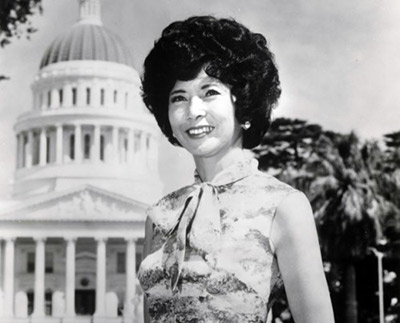
It almost goes without saying that 2016 may prove to be another historic, breakthrough year for women in politics. In recognition of this, the Oral History Center has initiated a new project to highlight the rare and important interviews in our collection of women who, against tremendous odds, broke through glass ceilings and forged their own path in the political arena. Over the next few months, we will feature some of these noteworthy pioneers in our newsletter. Also be on the lookout for a new audio series we are putting together on this very important subject.
This month we pay tribute to March Fong Eu, former Secretary of State and member of the State Assembly in California. Fong Eu was the subject a major oral history interview conducted by the Center in 1978. From an early age, Ms. Eu was considered a trailblazer, earning a BS in Dentistry from UC Berkeley and a PhD in Education from Stanford University. In 1966, after years of work in local politics, she announced her candidacy for the State Assembly. Although bold and inspiring, the move garnered little support initially from the Democratic Party. Even Nicholas Petris, a Democratic incumbent in Eu’s district who knew her well, gave his endorsement to another candidate. “When you’re pressed to endorse candidates, sometimes you ultimately make a decision as to the one that?s going to win, more than the person you prefer,” Eu would recall. “Maybe he just felt that it couldn’t happen that I would win: There was only one woman in the legislature; women just did not get elected. And a Chinese woman at that.”
March Fong Eu proved them wrong. She won the Democratic primary, and went on to win in the November election, becoming not only the second woman elected to the California Legislature, but also the first from Asian ancestry. After serving four terms, she successfully ran for Secretary of State in 1974, becoming the first Asian American woman elected to a state constitutional office in the United States. She would hold that office for the next two decades, resigning in 1994 to serve as U.S. Ambassador to the Federal States of Micronesia at the request of President Bill Clinton.
March Fong Eu’s accomplishments in Sacramento were many. In the Legislature, she pushed to abolish paid toilets in public buildings, an unfair and discriminatory feature for women, and spearheaded many successful policy campaigns in the fields of education, public health, consumer affairs, farm pesticide safety, family planning, environmental protection, and tax reform. As Secretary of State she instituted innovations such as voter registration by mail, at-large absentee balloting, internet reporting of all election-related data, and the inclusion of candidate statements in ballot pamphlets. Throughout her thirty years of service, Ms. Eu stood as a pioneer in California politics, opening doors for the number of women who followed. As she would later observe, her tenure in Sacramento helped many “accept the fact that change is here and change has come.”
Excerpts from her speech, ‘The Self-Sufficient Woman’ February 1973
If there is one field where women must be especially self-sufficient, it is politics. I say this not only because I could cite statistic after statistic about the small number of women in elected offices. I say this not only because I could talk about the virtual void of women in higher political administrative positions?. But my saying women have to be especially self-sufficient in politics has to do with a kind of ?seriousness syndrome? which is part of the double standard in politics…
When women have fun, there seems to be a massive male overreaction. When one burning took place of a uniquely female garment of support, all of a sudden all women seeking legal justice and social equality were frivolous, crazy bra-burners. If I may speak jocularly, I wonder if someone revolting against the rather unusual athletic mystique in this country were to burn a uniquely male garment of support, whether there might be a similar reaction.
Maybe if some men had to bear and rear unwanted babies themselves, they would understand better our resentment of laws relating to our reproductive systems. Maybe if some men let their wives involuntarily control their income, they would understand better our resentment of present discriminatory statutes directed toward women as a class. And maybe if some men were raped, and, in pursuit of justice, they found that they had to reveal humiliating information about their past lives- maybe then they would understand the anger of women who feel they are doubly wronged by rapists and the laws concerning rape.
I guess what I am saying is that I believe it is about time that some men need to do some honest rethinking about their perspective and prejudices.
Being one of only two women in the California Legislature, in the last six years I have been in a good position to see the emerging political activism of women and I am delighted by it…
I am confident that the two constituencies for whom I have become something of a symbol will continue to grow in power and influence so that no longer will they feel that they are constantly being ‘White-Maled.’
Todd Holmes, Oral History Center